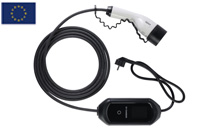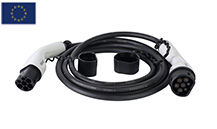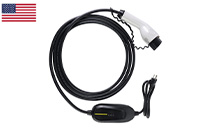Electric vehicles are one of the most important means of green transportation, and can achieve low or no carbon emissions, which is in line with the international advocacy of the "double carbon" concept, no doubt, the sales of electric vehicles continue to rise. Of course, this also means that more and more charging infrastructure is needed, and more charging stations are needed to replenish the electricity, and the charging stations need to use safer and more efficient ways to charge the electric vehicle batteries. This places new demands on the EV chargers that deliver the current from the charging stations to the vehicles.
EV chargers not only need to carry high voltages and currents, they also need to withstand external extremes of temperature, UV rays, water and automotive chemicals due to frequent outdoor use. In particular, cables used at charging stations also need to have good flexibility to extend and retract safely to ensure a safe environment for public use and to avoid damage to the cables by vehicles.
Electric vehicles (EVs) are divided into pure electric vehicles (AEVs), plug-in hybrid electric vehicles (PHEVs), and
Hybrid Electric Vehicle (HEV). And EV chargers are divided into three levels.
Level 1: AC portable units, which have a low level of charging and are mainly used to replenish the batteries of PHEVs to improve the urban range.
Level 2: AC wall chargers, which are typically used for home and some public charging. Level 2 enables charging of up to 19.2 kW, or a range of about 115 km per hour of charging.
Level 3: DC fast chargers, which deliver up to 350 kW of charging power and can add up to 115 km of range per 10 minutes of charging. DC fast charging stations are typically placed at conventional gas stations and dedicated highway stops due to their higher price.
The key connections between the charger and the car are the charging cable and connectors. DC fast charging stations have high requirements for cables and connectors and FAFA-E can provide a reliable solution for them. We offer Combined Charging System (CCS) connectors for this type of charger, which are capable of charging up to 350KW.
Our EV charging cables are equipped with a certain number of signal cables, control cables, power auxiliary cables, etc. to ensure accurate control and safe operation of the entire charging process.






 简体中文
简体中文
